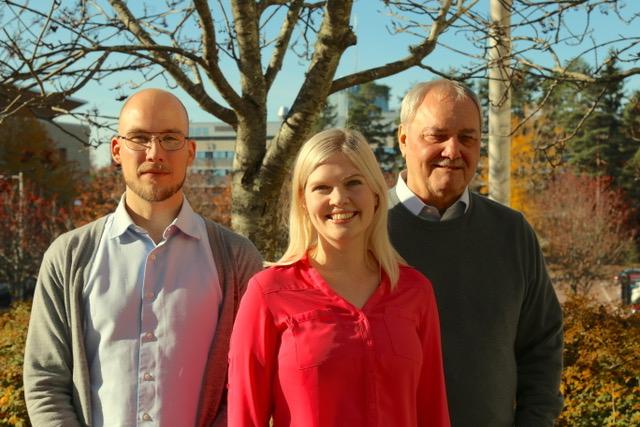CTF BLOG: Institutional complexity as a prerequisite of innovation
2017-10-26Läs vår senaste blogginlägg som Kaisa Koskela-Huotari, doktorand i företagsekonomi vid CTF, skrivit tillsammans med forskarna Jaakko Siltaloppi and Stephen L. Vargo.
Innovation and change are omnipresent in the contemporary society and business. For a long time, innovation has been associated with activities within firms that develop new offerings—products and services—for the customers. With the emergence of service-dominant (S-D) logic, however, we now understand innovation more broadly in the context of multi-actor service ecosystems, in which actors seek solutions to common problems by integrating resources in new ways to cocreate value.
Our paper, titled “Institutional complexity as a driver for innovation in service ecosystems”, focuses on the emergence of novel solutions in such multi-actor systems. According to the S-D logic literature, value cocreation in service ecosystems is guided and constrained by institutional arrangements. Institutional arrangements are the interrelated sets of rules, norms and beliefs the actors share in a given context. In this sense, institutional arrangements are what enable coordinated, collaborative action among multiple actors. On the flipside, however, the institutional arrangements also inhibit innovation and change by confining actors to shared practices. So, how does innovation come about from the institutional perspective?
Our answer lies in identifying the multiple institutional arrangements that guide and constrain human action. Because actors are simultaneously embedded in multiple institutional arrangements, such as those associated with family life, diverse work contexts, different professions, religions, and so on, the actors are often confronted by multiple prescriptions for action that are not always compatible. This incompatibility, which we call institutional complexity, reduces the influence of prevailing institutions by activating conscious problem solving. In other words, the incompatibilities and contradictions among institutional arrangements enable actors to combine the resources available through multiple institutional arrangements in novel ways—that is, enable them to innovate.
In this sense, we provide an institutional conceptualization of innovation that places diversity and reflexive problem-solving at the core of creating new solutions. This expands understanding on the early phase of the innovation process. Moreover, it advances the service-dominant logic by conceptually reconciling the stability of institutional arrangements with the actor-driven creation of novel solutions.
For more information, see:
Siltaloppi, J., Koskela-Huotari, K. & Vargo, S. L. (2016). Institutional complexity as a driver for innovation in service ecosystems. Service Science, 8(3), 333-343. https://doi.org/10.1287/serv.2016.0151.
The article was recently awarded the Best Article Award by the editorial board of Service Science.
Kaisa Koskela-Huotari
Ph D student, CTF, Service Research Center at Karlstad University
kaisa.koskela-huotari@kau.se
Jaakko Siltaloppi
Post-doctoral researcher, Aalto University, Finland
jaakko.siltaloppi@aalto.fi
Stephen L. Vargo
Shidler Distinguished Professor and Professor of Marketing, University of Hawai’i
Visiting Professor at CTF, Service Research Center, Karlstad University
svargo@hawaii.edu



